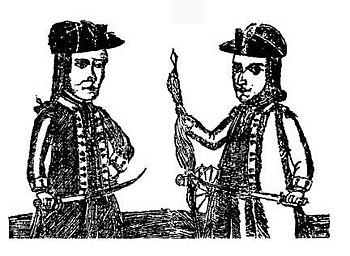The Nationalists (continued)
In Massachusetts in 1786, an event occurred that directly coincided with the beliefs of the Nationalists. Following the war, merchants and wealthy colonists who had loaned money to the states began to demand their money back. They pushed lawmakers to pass taxes in an effort to collect money to pay off the debts. For example, in Massachusetts, legislators passed a tax that was to be paid in specie—gold or silver coin—rather than in paper money. Such stipulations placed on the colonists were reminiscent of British authority prior to the war.
Farmers, such as Daniel Shay, found the tax to be particularly constrictive. Shay was a war hero who eventually faced jail for not being able to pay the tax. Instead of being jailed, he led a rebellion against the taxes. Shay led the protestors to an arsenal in Springfield, Massachusetts. Since Congress had no real authority or funds to handle the situation, the state government was forced to intervene and eventually was able to stop the angry looters. The event, which became known as Shay’s Rebellion, was proof that the Articles were not enough to govern the United States.
In an effort to amend the nation’s political and financial situation, the Nationalists held the Constitutional Convention in Annapolis, Maryland in 1786.